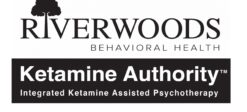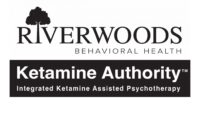
Nearly 70% of adults experience at least one traumatic event in their lifetime, indicating a significant need for effective recovery strategies.
We're intrigued by the potential of ketamine infusion therapy as a groundbreaking approach to maximize trauma recovery. This method, though not universally applicable, offers a beacon of hope for many who've found traditional treatments lacking.
As we explore the complexity of trauma recovery mechanisms and the planning of therapy journeys, we'll also touch on how to manage expectations and share inspiring patient success stories.
Join us as we uncover the depths and breadths of how ketamine therapy could revolutionize trauma recovery.
Understanding Ketamine Therapy
To grasp the potential of ketamine infusion therapy for trauma recovery, it's essential to first understand what ketamine therapy entails. Initially developed as an anesthetic, ketamine has found a new role in the treatment of various mental health conditions, including those related to trauma. It's administered in a controlled, medical setting, typically through an IV infusion. This method allows for precise dosing, which is crucial for its effectiveness and safety.
We've seen ketamine therapy stand out due to its rapid action. Unlike traditional antidepressants that may take weeks to show effects, ketamine can induce positive changes in mood and thought patterns in a matter of hours or days. This quick onset is particularly beneficial for individuals struggling with severe symptoms of trauma, offering a glimmer of hope when time is of the essence.
Moreover, ketamine's ability to temporarily disconnect certain neural pathways provides a unique opportunity for healing. During therapy sessions, patients may experience a sense of detachment from their immediate surroundings and a reduction in emotional pain. This can create a conducive environment for processing difficult memories and emotions, setting the stage for deeper therapeutic work.
Trauma Recovery Mechanisms
Understanding the mechanisms behind trauma recovery is crucial as we explore how ketamine infusion therapy facilitates this healing process. Trauma impacts the brain's natural balance, leading to persistent stress responses that can hinder one's ability to function and heal. Our bodies are designed to recover from trauma, but sometimes, they get stuck in a loop, unable to move past the initial shock.
Ketamine infusion therapy steps in to disrupt this cycle. It's believed to reset the neural pathways affected by trauma, offering a sort of 'system reboot' for the brain. This allows patients to break free from the chains of their traumatic memories and symptoms, facilitating a smoother recovery journey. We're looking at a treatment that doesn't just mask symptoms but gets to the root of the problem, promoting long-term healing.
Moreover, ketamine's ability to encourage neuroplasticity plays a significant role in trauma recovery. By enhancing the brain's plasticity, ketamine therapy supports the development of healthier thought patterns and emotional responses. It's like paving new, healthier neural roads over the old, trauma-impacted ones. This aspect of treatment is key to not just surviving after trauma, but truly thriving.
Planning Your Therapy Journey
Embarking on your ketamine infusion therapy journey requires careful consideration and planning to ensure the most effective recovery path. It's crucial we first consult with healthcare professionals who specialize in this therapy. They'll help us understand the process, set realistic expectations, and tailor the treatment to our specific needs.
We'll also need to assess our current health status and discuss any existing medical conditions or medications that might influence the therapy's effectiveness or safety. It's important we're transparent about our health history to avoid any potential complications.
Scheduling our sessions is another key step. We must ensure they fit into our daily routines without causing additional stress. It's not just about finding time; it's about making sure we're in the right frame of mind for each session to maximize its benefits.
Potential Benefits Explored
Exploring the potential benefits of ketamine infusion therapy, we find that it may significantly alleviate symptoms of trauma, offering a new hope for recovery.
Through our research, we've discovered that this innovative treatment can rapidly reduce the impact of chronic stress and post-traumatic stress disorder (PTSD) symptoms. It's not just about the temporary relief; some patients report long-lasting improvements in their overall mental health. This is particularly encouraging for those who've found little success with traditional forms of therapy and medication.
We also observe that ketamine therapy can enhance neuroplasticity, the brain's ability to form new neural connections. This is crucial for trauma recovery, as it means patients can potentially rewire their brains to process traumatic memories more healthily. Moreover, this therapy often brings about a profound sense of peace and connectedness, helping break down the walls of isolation that trauma can build.
Our findings suggest that ketamine infusion therapy holds great promise in treating trauma. It's not just about managing symptoms but fundamentally changing the brain's response to trauma. It's a beacon of hope for many who've felt stuck in their recovery journey, offering a path forward that was previously unimaginable.
Managing Expectations
While ketamine infusion therapy shows promising benefits for trauma recovery, it's crucial we set realistic expectations about its outcomes. It's important to understand that, like any treatment, results can vary significantly from person to person. We mustn't view it as a magic cure but as a potential part of a broader treatment strategy.
We also need to discuss the potential side effects and the fact that it mightn't work for everyone. It's an innovative approach, sure, but it's vital we approach it with a balanced perspective. The treatment involves a series of infusions, and improvement can sometimes be gradual. Immediate results aren't guaranteed, and patience is key.
Moreover, we emphasize the importance of continued support through therapy and lifestyle changes. Ketamine infusion can open doors to healing, but maintaining those gains often requires work beyond the treatment sessions. It's a tool, not the entire toolbox.
In setting these expectations, we aim to ensure that individuals are making informed decisions about their treatment. We believe in the potential of ketamine infusion therapy, but we also believe in being honest and transparent about what it can and can't do.
Patient Success Stories
We've seen remarkable transformations in patients who've undergone ketamine infusion therapy, each story a testament to its potential in trauma recovery. One patient, let's call her Emily, came to us with a history of PTSD that made daily functioning a struggle. Before ketamine therapy, she'd tried numerous treatments with minimal success. After just a few sessions, Emily's outlook began to change. She reported feeling lighter, as if a weight had been lifted. Her progress was astonishing, not just to her but to everyone around her.
Another story involves a veteran named Mark, who'd battled severe depression and anxiety following his service. Traditional medications hadn't eased his symptoms, and he felt stuck. Ketamine therapy, however, marked the beginning of a new chapter. Mark described the experience as a reset button for his brain. He found himself engaging in social activities again, something he hadn't felt comfortable doing for years.
These stories, among many others, highlight not just the clinical effectiveness of ketamine infusion therapy, but also its profound impact on individuals' lives. We're continually amazed by the resilience of our patients and the role ketamine plays in their journey towards healing.
Frequently Asked Questions
How Does Ketamine Infusion Therapy Compare in Cost to Traditional Trauma Therapy Methods, and Is It Typically Covered by Insurance?**
We're weighing the costs between ketamine infusion therapy and traditional trauma therapy methods. It's often more expensive upfront, but we've found that insurance coverage varies widely. Some plans are starting to cover it, especially as it gains recognition for its effectiveness.
However, it's not as universally accepted as more conventional therapies yet. We're keeping an eye on how insurance policies evolve to potentially make it a more accessible option for us in the future.
Can Ketamine Infusion Therapy Be Safely Combined With Other Forms of Therapy or Medication Currently Being Used for Trauma Recovery?**
We're exploring whether we can safely mix ketamine infusion therapy with other treatments or medications we're already using for trauma recovery. It's crucial to figure out if combining them can enhance our healing process without causing any adverse effects.
We've heard that it might be possible, but we're looking into the specifics, including any necessary precautions or adjustments we'd need to make to ensure our recovery path is as effective and safe as possible.
Are There Any Specific Dietary or Lifestyle Changes Recommended to Enhance the Effectiveness of Ketamine Infusion Therapy for Trauma Recovery?**
We're curious if there are specific dietary or lifestyle changes that could boost the effectiveness of our current treatment. It's important for us to understand how our daily habits can impact our recovery process.
What Are the Long-Term Effects of Using Ketamine Infusion Therapy for Trauma, and Is There a Risk of Dependency or Tolerance?**
We're curious about the long-term effects of using ketamine for trauma and whether there's a risk of dependency or tolerance.
It's crucial for us to understand these aspects to make informed decisions about our health. We're aware that with any treatment, there are potential risks and benefits, and we want to weigh them carefully.
Ensuring the therapy's safety and effectiveness over time is our top priority as we explore our options.
How Does One's Personal History With Substance Use Affect the Suitability or Approach to Ketamine Infusion Therapy for Trauma Recovery?**
We're curious about how a person's past with drugs might change how they're treated with new therapies for trauma. It seems like someone's background with substance use could really influence whether this type of treatment is a good fit or if it needs to be tweaked.
We're asking because we want to ensure safety and effectiveness without risking further issues. It's about finding a balance that respects their history while helping them heal.
Conclusion
We've explored ketamine infusion therapy as a transformative path for trauma recovery, understanding its mechanisms and potential benefits.
As we plan our therapy journey, it's crucial to manage our expectations, drawing inspiration from patient success stories.
Let's remember, while ketamine offers promising avenues for healing, it's one piece of a larger puzzle.
Together, we're stepping toward a future where trauma doesn't define us, armed with another tool to help us reclaim our lives.

